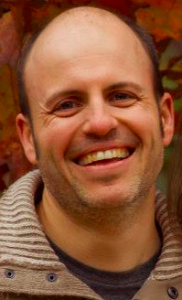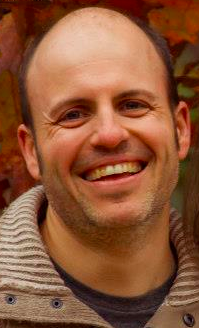Learn how to leverage Twitter’s 140-character microblogging platform into your global Personal Learning Network (PLN)
 I live and work in rural Maine, the northeast corner of the United States with New Hampshire our only tether to the rest of the country. To our north, Canada. To our east, the Atlantic. It is a beautiful place to live, a perfect place to raise a family, and with a robust statewide one-to-one technology initiative and dedicated professionals throughout, a pretty darn good place to teach.
I live and work in rural Maine, the northeast corner of the United States with New Hampshire our only tether to the rest of the country. To our north, Canada. To our east, the Atlantic. It is a beautiful place to live, a perfect place to raise a family, and with a robust statewide one-to-one technology initiative and dedicated professionals throughout, a pretty darn good place to teach.
Unfortunately, our geography and lack of population density makes it difficult for educators to connect with one another and even more difficult to attend professional development opportunities.
Quality events such as the Association of Computer Technology Educators of Maine’s (ACTEM) statewide tech integration conference, Maine Learning with Technology Initiative (MLTI) workshops, and Google Apps for Education Summits certainly exist. However, districts struggle to support Professional Development (PD) funding and the individual educator must often brunt the costs of attending. The possibilities of national connectedness feels remote.
Hello, Twitter.
In just a few short months, I have leveraged the 140-character microblogging platform into my global PLN. Twitter chat communities such as #edtechchat and #PATUE discuss technology integration, while #Satchat and #Sunchat explore a wide range of pedagogical topics both practical and philosophical.
(Next page: Successful Twitter networking tips)
#SBGchat provides opportunities to discuss standards-based grading, while #Engchat allows us language arts folks to gather and share. #Makered and #DIYchat connect the maker movement to the classroom. #EdchatME and other state-based communities open their doors wide (It felt down-right fantastic to reach the 1,000 follower threshold participating in #CAedchat while sitting in North Jay, Maine).
My students benefit from the connections we make with professional creators and thinkers. Twitter led directly to Imagination Foundation co-founder and “Caine’s Arcade” filmmaker Nirvan Mullick joining a Skype call with my Humanities students. A number of other opportunities are in development because I tweeted our watching of a particular documentary, reading of a particular article, or listening to a particular podcast.
In the most practical sense, a number of strategies, methods and tools I employ landed first in my Twitter feed. Use of “jot lots” for student reflections, Kaizena audio comments for assessments, and Post-It notes as concept manipulatives, hatched from my Twitter PLN.
Perhaps most energizing of all, Twitter provides a group of critical friends and first readers, folks who take note of my work and offer constructive feedback. Yes, I feel underbite-y from time to time, my blood pressure rises, and then I simply choose to ignore it, let it go, and in the Twitterverse, that is perfectly okay.
More often, however, I am pushed to challenge my preconceptions and assumptions, to adopt more constructive points of view, and to ask, “How might we?” rather than, “Why can’t we?”
In March 2014, I will moderate a panel on designing thinking in the classroom at SXSWEdu, my first national conference stage. This happened only because of Mount Vernon Presbyterian School’s Mary Cantwell and Trey Boden and the ever-expanding #dtk12chat community. Certainly my practice had something to do with it, but it was through Twitter I learned of the conference, and my #dtk12chat colleagues who suggested we submit a proposal.
It is hard to turn away from such a high quality source of digital PLNs as Twitter affords, especially at a price of zero dollars. And besides, there is something special about saying to your students, “LeBron James and I trended on Twitter last night.” True story.
Dan Ryder is a 15-year veteran English teacher and improv coach at Mt. Blue Campus in Farmington, Maine. An adjunct instructor at the University of Maine at Farmington, he presents workshops on technology integration and improvisation throughout the state. As co-founder of education podcast and blog, www.WickedDecentLearning.com, he can be followed on Twitter @wickeddecent.
- Tips on building a personal learning network on Twitter - November 19, 2013

